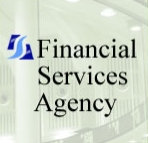Japan has been one of the biggest financial and economic centers in the world for decades if not centuries, with an established authority on the world political and economic scene. This obviously means that Forex, as a business, would also flourish as part of the financial industry growth and culture. Many of the Forex brokers in the industry had recognized this and opened the trading opportunities to Japanese traders who got access to the market in high-quality conditions and under regulatory terms by the government through Financial Services Agency.
The Japanese Yen And Its Significance in the Forex Industry
 The Japanese Yen is highly ranked in the Forex market as one of the most tradable currencies. A total of 80% of the market is dominated only by seven currencies and the Yen is one of them. Usually, these currencies and currency pairs are known as the major currency pairs based on the trading frequency. Japan is known as a very developed economy with a very high GDP, and it is no surprise that the country is a key player in the Forex market. Many cannot believe that the Yen is so weak against the USD given the Japanese flourishing economy (1USD equals 105.108 YEN).
The Japanese Yen is highly ranked in the Forex market as one of the most tradable currencies. A total of 80% of the market is dominated only by seven currencies and the Yen is one of them. Usually, these currencies and currency pairs are known as the major currency pairs based on the trading frequency. Japan is known as a very developed economy with a very high GDP, and it is no surprise that the country is a key player in the Forex market. Many cannot believe that the Yen is so weak against the USD given the Japanese flourishing economy (1USD equals 105.108 YEN).
First of all, let us make clear that the Yen is not that weak given that the value of a currency is more associated with its increase over time and not the nominal value. Over the last 40 years, the Yen increased by over 300% against the USD. The Yen was affected by past events, mostly by WWII, which caused a massive inflation in the country. After WWII, the Yen was pegged to the USD at a fixed rate of 360 Yen. That arrangement ended in the beginning of the 1970s, and since then on, the Yen’s value has been skyrocketing. The Yen is also the major reserve currency for all other Asian countries which indicates the currency’s stability.
Many Forex traders prefer to trade currency pairs with the Yen, because it serves as a kind of guarantee due to its stability. Still, there are no guarantees in the Forex market and traders have to carefully study the market to predict currency movements. No matter how strong the Yen seems, the market is dynamic and even the Yen, just as the USD or GBP, can go in the opposite direction.
The FSA Forex Regulations
In 1998, the Financial Supervisory Agency was established under the Prime Minister’s office, and the Financial Supervisory Agency was reorganized into Financial Services Agency under FRC (Financial Reconstruction Commission). With the office in Tokyo, the Agency has become authorized to provide stability of the financial sector by regulating the banking, exchange and insurance markets. With Securities and Exchange Surveillance Commission (SESC), the Certified Public Accountants (CPA) and Auditing Oversight Board (AOB), the Agency is under the Minister of Finances’ authority. The FSA is directly responsible for the security and consistency of the Japan financial system, ensured through policymaking as well as supervision of the FSA Japan regulated brokers and all securities transactions. The FSA makes an effort to keep the Japanese financial market in line with international standards and safe from fraudulent market participants. Its tasks do not differ much from supervisory tasks in Europe and the USA with a primary focus on transparency, competitiveness, stability, trust in the market and fair conditions. All monitoring bodies have similar goals and objectives and act in the best interest of the market participants.
Best Forex Brokers
| Broker | Bonus | More |
|---|---|---|

|
Check Website | Review |
FSA Regulated Forex Brokers
Japan has a specific and advanced economy and Forex market is matching, providing the traders with top quality trading opportunities through market consistency, high liquidity, state-of-the-art platforms, security and finally customer support regulations. The Financial Services Agency has policymaking and regulatory authority with a mandate from the Ministry of Finance, and actively enforces the laws and regulations protecting the end-customers with the FSA Japan regulated brokers.
The Forex brokers in Japan are following the high standards, just as banks, insurance companies, and other financial institutions, all being supervised by the FSA. FSA also works together with other regulatory bodies to develop a consistent international regulation, while playing a role in the growth of the national economy. The FSA also provides detailed information and constant input for the traders. The FSA regulated brokers are thus widely trusted, and they are being strictly regulated in a secure and reliable trading environment for traders to join. Offshore Forex companies who want to secure Japanese clients have to obtain a FSA license regardless of their location.
The FSA has already issued warnings against Forex brokers who tried to enter the Japanese market, i.e. win over Japan-based clients, without being registered in Japan. The FSA does not tolerate or approve of licenses acquired abroad, even if the brokers have no regional office in Japan. When the FSA considers that a broker is targeting Japanese traders they react accordingly. The FSA insists and politely advises traders to check registered businesses and Forex brokers on their website, including both, national and foreign companies.












